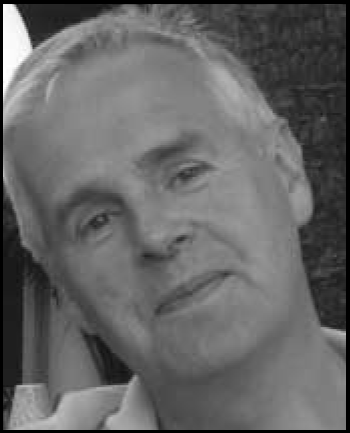
Formerly Newman Professor of Mental Health Research, University College Dublin and Consultant Psychiatrist, DETECT Early Intervention Service and Cluain Mhuire Family Centre, St John of God Hospital, Dublin, Ireland
Eadbhard Dónal O’Callaghan, who died aged 53, was one of the earliest proponents of the neurodevelopmental model of schizophrenia identifying obstetric complications and influenza as key risk factors of the disease. He was intensely intellectual and had a passionate interest in sports – sometimes explaining complex scientific ideas in terms of tactics adopted by Liverpool Football Club. He was one of the foremost researchers in Irish psychiatry and a passionate advocate of early intervention in psychosis. He was an inspiring mentor to the cohort of Irish psychiatrists on whom he lavished attention during his time as tutor on the St John of God psychiatric training scheme. Many psychiatrists in academic positions in Ireland and elsewhere are indebted to Eadbhard for first recognising and encouraging their interest in research.
He was born in Dublin on 8 July 1957 and began his medical studies at the Royal College of Surgeons in Ireland in 1976. His medical school yearbook mentions his scientific mind and ‘obsession for mastering the unknown’ balanced by his sense of mischief and his ‘charming smile’. On qualifying he specialised in psychiatry and joined the St John of God rotational training scheme. There it became clear that he had a rare talent for relating to people in trouble. Indeed, his insight, his judgement and the kindness he showed to his patients were remarkable.
On completing his membership examination he took up a post as Research Fellow in the St John of God services under the supervision of Conall Larkin and John Waddington. Eadbhard had a particular interest in psychotic disorders and in the ‘new’ neurodevelopmental theories of schizophrenia which were just coming to the fore at the time. Even though still a relatively junior researcher, he published highly cited papers on obstetric complications and minor physical anomalies as risk factors for schizophrenia, thus providing crucial support for the neurodevelopmental model. He was offered a fellowship with Professor Robin Murray at the Institute of Psychiatry, King's College London. The fellowship got off to a somewhat shaky start. The twin study that Eadbhard had originally come to work on did not go ahead and he had to find something else to do. He then persuaded Professor Murray that epidemiology was a promising approach. With colleagues Nori Takei and Pak Sham, Eadbhard published a seminal paper in the Lancet showing that prenatal influenza increases the risk for schizophrenia. This paper changed the direction of Professor Murray's research and his department soon became one of the main centres for epidemiological work in psychosis; due in large part to the foresight and persistence of one exceptional young researcher.
Despite many entreaties to stay in the Institute of Psychiatry, Eadbhard returned to Dublin in 1991 to take up a post as consultant psychiatrist and tutor in the St John of God rotational training scheme – his old Alma Mater. He returned full of ideas and energy and inspired many psychiatric trainees to consider carrying out research on psychosis. With the support of a Health Research Board (Ireland) Unit Grant and a Stanley Foundation (USA) Center grant, he began to build up a productive research group in Dublin. His favourite question to new trainees was, ‘So what do you think causes schizophrenia?’ He retained his passionate interest in epidemiology and his belief that this was the only way that the ‘big’ questions in psychiatry could be solved. His MD thesis on obstetric complications and schizophrenia was followed by a DSc and FRCPsych. His academic achievements were honoured by his appointment to a personal chair as Newman Professor of Mental Health Research in University College Dublin. He was awarded an International Gold Medal by the Italian Cognitive Neuroscience Research Society in 2001.
Eadbhard gradually began to focus more on clinical research and became concerned at the long duration of untreated illness among patients with psychosis. His work in this area led him, with a group of like-minded colleagues, to set up the first early detection and intervention service for psychosis in Ireland, which remains an exemplar of clinical innovation and good practice. A new cohort of trainees in psychiatry, psychology, nursing and occupational therapy became enthused with his belief in the importance of early intervention and saw the difference they could make to people's lives.
Before his untimely death he had become interested in an inclusive youth mental health model of service incorporating early intervention for a wide range of illnesses. He was attending a Youth Summit in Killarney in May 2010 when he became ill. After a very difficult year ending 2 May 2011, he died. An Annual Youth Mental Health Research Prize has been established in his honour.
Eadbhard was a shy man who disliked public speaking yet he lit up a room when he entered and was a memorable if reluctant speaker. He was a skilful tennis player and enjoyed sailing and cycling, even managing in recent years to cycle some of the Tour de France route – a long-held ambition. Eadbhard's passing has left all who knew him, both colleagues and patients, with a great sense of loss. His family including his wife Virginia and their four sons, Caolán (21), Oisín (19), Harry (16) and Eadbhard Junior (9) feel that loss most of all. He was so proud of his four sons and all they had achieved, and his wife was the love of his life and a rock of support during that difficult final year.
There is of course one person who would disagree with most of the praise heaped upon him here and would have said quietly, ‘But surely you must be thinking of someone else’.



eLetters
No eLetters have been published for this article.